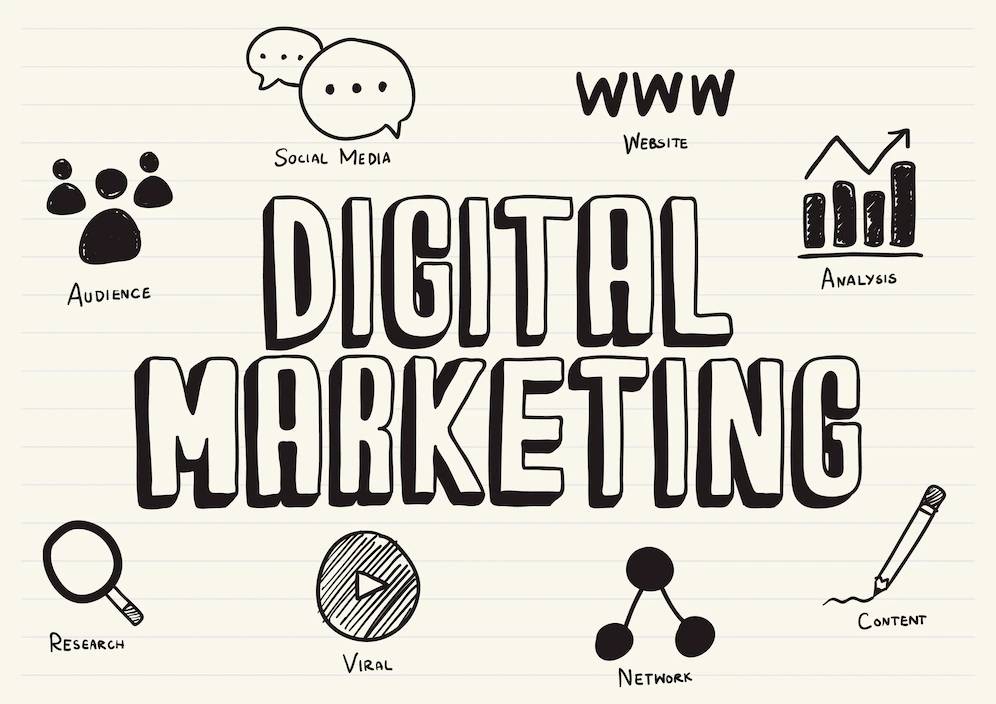Shubham Sethi

What does impact on consumer or customer behaviour means?
Customer behaviour primarily refers to the buying habits and decision-making processes of consumers. These are individuals that are searching for goods and services for their own use.
Businesses around the globe value information about customer behaviour. This is as a result of their ongoing efforts to improve both the shopping experience and ultimately their sales numbers.
They can comprehend consumer expectations in the market by studying consumer behaviour and this is referred to as impact of digital marketing on customers. Additionally, it enables them to make adjustments that will enable customers to make wiser purchasing choices.
Information on what customers buy, where they buy it, and when they buy it is included in the study. Additionally, it displays details about their intentions, purchasing patterns, and other things.
Different ways in which digital marketing impacts customers:
- Research and experimentation skills
When it comes to researching potential purchases, modern consumers have gotten incredibly good. They are becoming more intelligent and aware as technology gives them the ability to approach online decision-making critically.
As businesses attempt to promote their goods online, they are exposed to a vast amount of content. Consumers are now able to explore and compare products online before deciding what to buy, which has made the purchasing process easier for them.
Since there is so much information online, they have even been able to test out several products and draw conclusions. The same technology that has greatly empowered people has also allowed them to be influenced by brands in their shopping decisions.
Customers now have a greater understanding of specific services and goods thanks to the impact of digital marketing, which also helps them make the most of the open communication that brands are prepared to have with them.
- Easily understood word-of-mouth
The practice of word of mouth is not new. Both brands and customers utilise it to facilitate commerce. Definitely the most important factor influencing consumer behaviour is word-of-mouth.
Consumers are constantly looking for third-party reviews of a product or service. Particularly for a product they are thinking about buying. When a customer tells their network about their experience, it means a lot to brands and the practical example of the impact of digital marketing.
Technology has given consumers the ability to project their opinions on a huge audience, particularly social media. For instance, customer reviews posted on brand pages, comments on sponsored posts, and blogger reviews have all assisted consumers in broadening their perspectives on consumerism.
- Variable Customer Loyalty
Impact of digital marketing has, however, also made it exceedingly challenging for customers to remain brand loyal. Prior to the digital marketing revolution, customers always had a favourite brand. They frequently opted to stick with well-known brands and items.
This was because, unlike today, people were not exposed to a wide variety of goods and services. Customers these days are looking for goods that offer them more value for the same price.
Not only that, but they also take into account things like customer service, brand value, discounts, and more. Customers now have options as more firms launch improved features and incentives.
- Enhancement of Customer Engagement
Customers have always desired to be a component of something greater. They don’t pass up the chance to interact with their preferred brand.
Thanks to the internet and mobile technology’s continued uptake, client interaction has significantly increased.
Anyone with an internet connection can access social networking sites. As a result, consumers are actively interacting with their brands on social media platforms and online discussion boards. Customers have always had the ability to choose their brands and shape their reputations, but the impact of digital marketing has only resulted in an increased power.
On social media, search engines, and other review websites, consumers can interact with brands.
- Impulsive Purchasing Practices
The impulse purchase phenomenon has been successfully increased by the impact of digital marketing. In essence, an impulse purchase choice is one that is made just before making the actual purchase. In other words, impulsive buying refers to a decision made on the spur of the moment rather than in advance, when typically buyers pre-plan their purchases and pre-select the goods they desire to buy.
Digital marketers make use of this widespread phenomenon to influence consumer behaviour in a favourable way. Brands showcase enticing offers, discounts, and bargains through online advertising, which shoppers are eager to explore.
Brands frequently advertise their highlighted bargains on third-party websites and social media platforms, which influences consumer behaviour.
- Greater expectations without a hint of patience
With technology, consumers’ expectations for quick, efficient service have doubled, which has resulted in a noticeable increase in their impatience. They are exposed to heartfelt, authentic comments about goods and services through online forums and user reviews.
Services and facilities that fall short are unacceptable. Customers anticipate quick responses from brands to their questions. When consumers don’t get what was promised, they publicly voice their disappointment, which has a detrimental effect on a brand’s online reputation.
They receive a wealth of information through digital marketing digital marketing, which has a significant impact on their purchase behaviour. The expectations of customers throughout the world are gradually rising as a result of services like hassle-free exchanges and next-day delivery.
- Experience in Personalized Shopping
Consumers are now accustomed to a customised purchasing experience because to digital marketing.
These days, they don’t want to take a lot of time to study and buy the things they want.
Because of this shift in consumer behaviour, brands have adapted their online marketing and branding strategies to give every customer a customised experience through the curation of individualised content. The entire buying experience is thus customised to meet the demands of each unique website visitor.
In The End
We at OptMum Digital have discussed a few of the numerous ways that digital marketing has altered how consumers view brands. Customers will have more control over their buying experience as new technologies emerge. However, businesses may influence their potential clients’ purchasing behaviours thanks to the same constant advancement of technology. It will be fascinating to see how digital marketing will influence how people will shop in the future.









